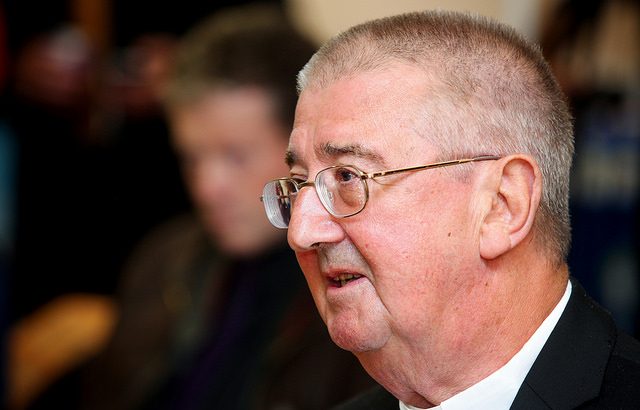Far from being a burden, older Catholics are a source of renewal and new growth, writes Fr Paddy Gleeson
An article in the New York Times in early December spoke of the dramatic decline of the Catholic Church in Ireland in recent decades. Towards the end of the article, the Archbishop of Dublin Dr Diarmuid Martin was quoted as referring to the people who still come to church as “a dying breed”.
This remark set me thinking about a possible alternative vision. I knew that I had heard a similar remark before, and it was from a Russian tour guide.
In 1986, I went on a study trip to the then Soviet Union with a group of priests and religious. It was organised by the state-run ‘Intourist’ agency.
A few cathedrals and monasteries were still open – mostly as museums.
Worshippers
We did see a small number of elderly worshippers, but the guide was of the opinion that these “would soon die out”.
There was no mention of the savage persecution of religion which followed the October revolution of 1917. Countless thousands of bishops, priests and faithful of the Russian Orthodox Church, as well as Catholics and other Christians were imprisoned.
Remnants of the church, which were allowed to remain for the sake of appearances, were closely supervised by the Soviet security agency the KGB.
During our visit we did manage to meet one or two priests. One of them enquired furtively about the latest news of the message of Fatima. Later I realised the significance of this as at Fatima Our Lady had asked for prayers for the conversion of Russia.
Only five years after our visit, the Soviet Union was peacefully transformed into the Russian Federation. In the decades which followed the Russian Orthodox Church has experienced a miraculous revival.
Hundreds of cathedrals and churches, monasteries and convents have been restored with thousands of vocations to the priesthood and religious life. What has now emerged is that the Faith and traditions of the Church had been preserved by the elderly. Grandparents who had persevered in their religious practice in old age had secretly baptised their grandchildren.
These elders appeared to be no threat to the regime and could safely be dismissed as ‘dying out’. In fact, the elderly generations were a reservoir of faith and prayer. They provided the foundation for the remarkable revival of the Church which occurred.
Pope Francis has spoken frequently about the valuable place of the elderly in the life of the Church and in society. At his catechesis in St Peter’s Square in March 2015, he spoke at length on this subject, dwelling especially on the valuable contribution of grandparents in the family, as bearers of tradition and memory, and as witnesses to the faith.
When he visited the Philippines, Pope Francis was very moved to be greeted as ‘Lolo Kiko’ which means ‘Grandpa Francis’.
The Pope also spoke of how moved he was by the day dedicated to the elderly which was celebrated in St Peter’s Square. He noted the number of couples celebrating their 50th or 60th wedding anniversary, and the importance of presenting this witness to young people who can tire so easily.
He reflected on the witness of the elderly worshippers in the Temple, Simeon and Anna, recounted in the Gospel of Luke. “The Gospel says that these elderly people awaited the coming of God every day, with great trust, for many years. They truly wanted to see him that day”.
Pope Francis also speaks of the prayer of the elderly as a great gift for the Church: “Above all, we need old people who pray.” Quoting the Orthodox theologian Olivier Clément, Pope Francis continued: “This (prayer) is the very purpose of old age.”
The Holy Father praises the wisdom which elders have to offer. They may not have the knowledge and familiarity with the latest technology which can so dazzle the young. But they have a level of wisdom, gained through experience, which can give meaning and hope to our lives. The many people who return to religious faith and practice in their later years, is a testimony to this.
The Catholic Church in Ireland has in its older members, including its older religious and priests, a resource of faith and prayer which can be seen as a source of renewal and new growth.
Holiness
Far from being a burden or a ‘dying breed’, they can be seen as a blessing for the Church and for society. In my own ministry, I have come to realise that many of our elderly parishioners live lives of extraordinary holiness.
In the Church their prayer and witness of faith can be directed to address our greatest needs today – vocations to the priesthood and religious life, and the evangelisation of those who no longer believe.
Fr Paddy Gleeson is retired and lives at the pro-cathedral in Dublin.


 Archbishop Diarmuid Martin
Archbishop Diarmuid Martin 